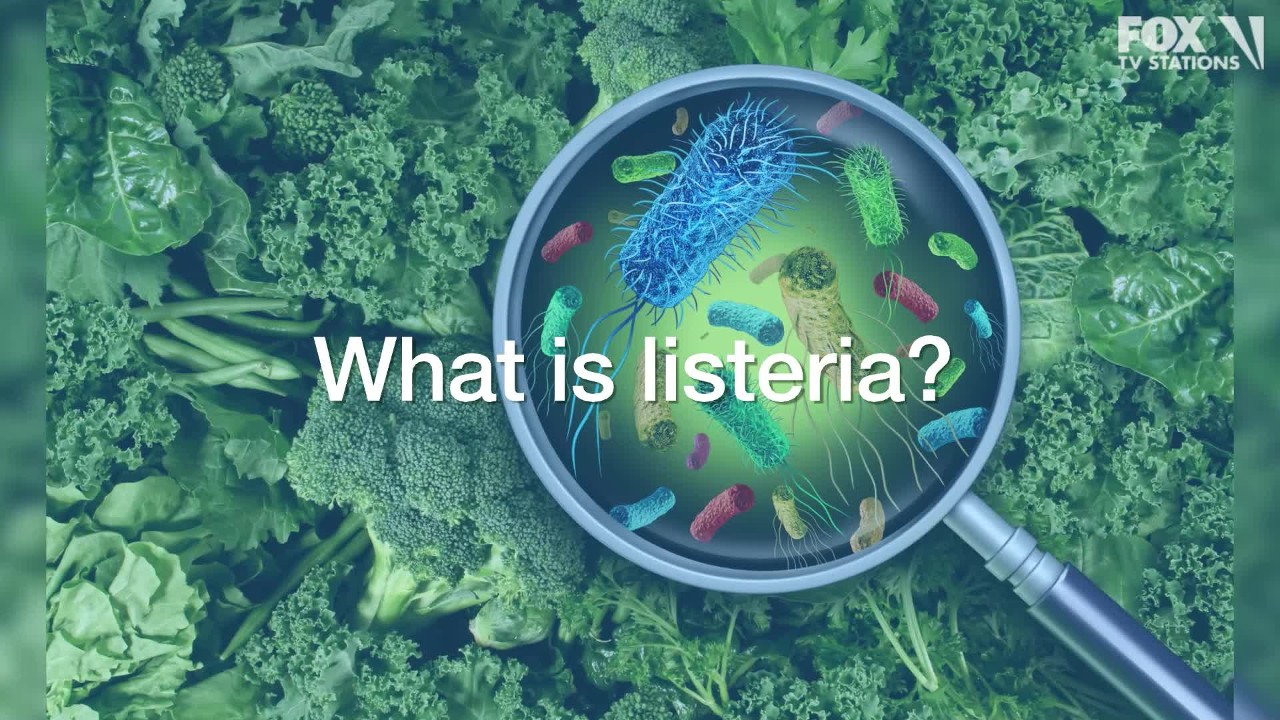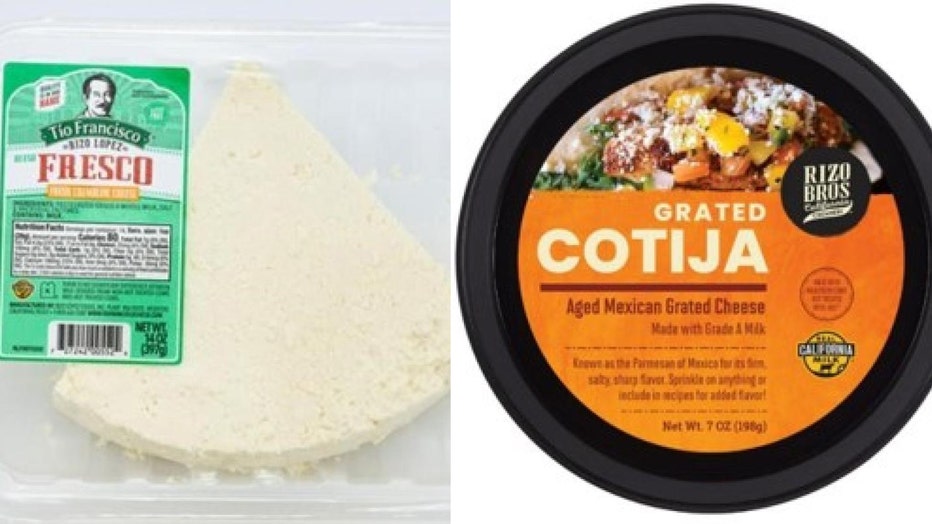Deadly listeria outbreak linked to cotija cheese, queso fresco, more dairy products, CDC says

What to know about listeria
According to the U.S. Centers for Disease Control and Prevention (CDC), Listeriosis is an infection usually caused by eating food contaminated with Listeria monocytogenes.
A decade-long outbreak of listeria food poisoning has been narrowed down to a California cheese and dairy company as the possible source, U.S. health officials announced this week.
Two people have died and at least 26 have been sickened across 11 U.S. states since the outbreak was first detected in 2014, according to the U.S. Centers for Disease Control and Prevention. One death was reported in California and the other in Texas.
CDC officials said new lab and inspection evidence linked certain cotija, queso fresco, and other soft cheeses and dairy products made by Rizo-Lopez Foods of Modesto, California, to the outbreak.

Two of the recalled cheese products are pictured in provided images. (Credit: U.S. Food and Drug Administration)
Rizo-Lopez Foods issued a recall of its products, which include cheese, yogurt, and sour cream sold under the brand names Tio Francisco, Don Francisco, Rizo Bros, Rio Grande, Food City, El Huache, La Ordena, San Carlos, Campesino, Santa Maria, Dos Ranchitos, Casa Cardenas, and 365 Whole Foods Market.
The recalled dairy products were distributed nationwide by RLF and through distributors, federal health officials said. Products were also sold at retail deli counters, including El Super, Cardenas Market, Northgate Gonzalez, Superior Groceries, El Rancho, Vallarta, Food City, La Michoacana, and Numero Uno Markets.
The CDC previously investigated the listeria outbreak in 2017 and 2021, identifying queso fresco and other similar cheeses as a potential source of the outbreak, but there was not enough information to identify a specific brand, officials said.
The investigation was reopened in January after new illnesses were reported, and the outbreak strain was found in a cheese sample from Rizo-López Foods, according to the CDC.
Listeria infections can cause serious illness and, in rare cases, death. People who are pregnant, older than 65 or have weakened immune systems are particularly vulnerable. Symptoms — like muscle aches, fever and tiredness — usually start within two weeks after eating contaminated foods, but can start earlier or later.
Consumers who have these products should throw them away and thoroughly clean the refrigerator, counters and other contact sites, the CDC said. Listeria can survive in the refrigerator and easily contaminate other foods and surfaces.
RELATED: Neptune's Fix, tianeptine product, recalled over life-threatening overdose risks
This story was reported from Cincinnati. The Associated Press contributed.

